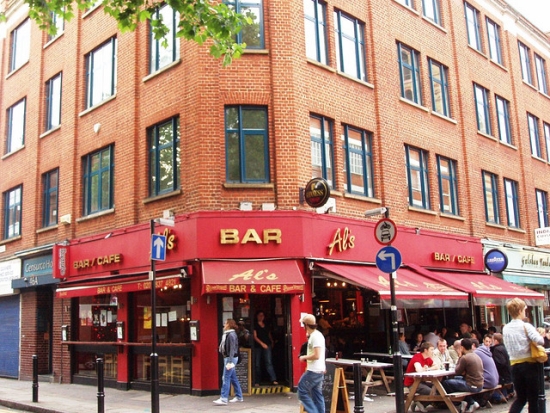Getting the right mix of retail and leisure outlets is essential to maintaining high street blood flow, a new survey claims.

A majority of people prefer going to a restaurant or coffee shop in town rather than a shopping mall or out-of-town retail complex. And that, says Deloitte’s latest Consumer Review, is part of the key to maintaining a high street’s retail health.
More than 1,200 adults were quizzed on their consumer habits by market research agency, TNS. The results, published by Deloitte, show that town and city centre streets which have a good retail mix are overwhelmingly attractive to shoppers and free-time spenders alike.
Fifty-two per cent of those surveyed said they preferred to visit a local cafe, compared to just 18 per cent who would go to a town centre mall for a coffee or tea. Eleven per cent would choose to visit an out-of-town shopping development. Of those who regularly ate out, 43 per cent preferred a high street restaurant and 28 per cent a central bar or night club.
Jon Lake is a corporate finance director in Deloitte’s licensed retail group. “Food and beverage operators have an increasingly important part to play in the development of the high street,” he explained. “They need to continually innovate and maintain brands, products and services to meet the changing demands of the modern consumer.
“However, the high street needs help to enable it to evolve in response to the changing landscape. An important factor in this will be the need to address its fragmented ownership and management structure, together with planning policies that constructively support the regeneration of town centres,” he said.
Traditionally, retail centres have served the shopping needs of the local community, added Ben Perkins, head of consumer business research at the professional services provider. “The results clearly demonstrate the continued variety of roles fulfilled by the high street, but also how its use is gradually evolving. However, in a changing retail landscape, it must change and offer a broader range of experiences and services in order to become the nerve centre of a town or city; a place where people can get together.”
Surprisingly a majority of consumers think they should have a say in a town centre’s retail mix and facilities. More than 70 per cent of those surveyed thought it should be the consumers themselves who ultimately decided which shops and services retail streets should offer.
If they could have a voice on what businesses made up their local High Street, the main improvements most consumers wanted to see concerned parking and a broader selection of store types. Sixty per cent wanted more free parking, 59 per cent a wider range of shops and 57 per cent more independent retail stores. More than a third of consumers also said they wanted a more diverse range of restaurants, with a quarter asking for a bigger selection of bars and coffee shops.
Previous Post
Chinese Banks plan Major City Acquisitions